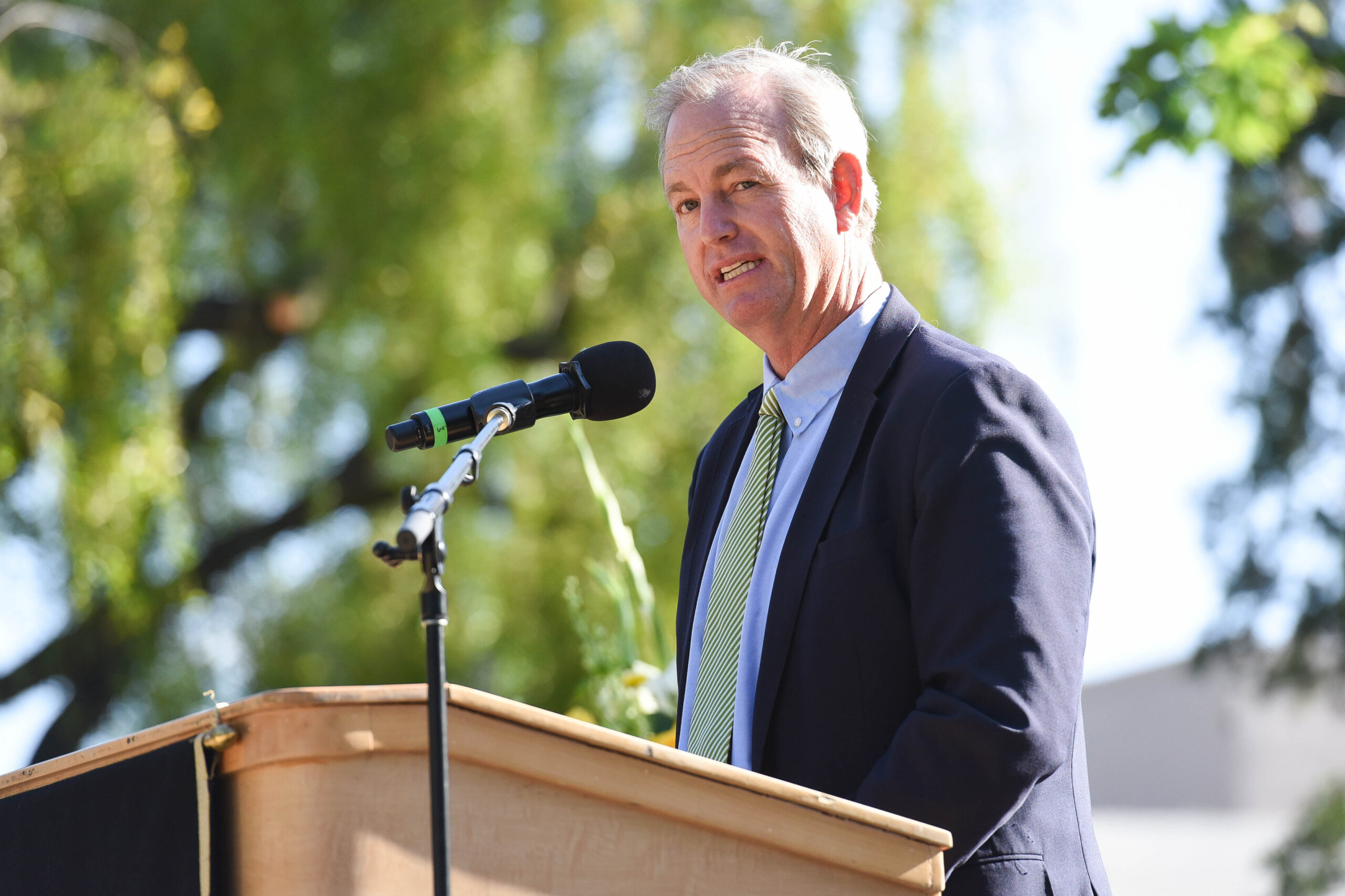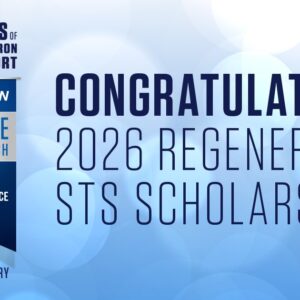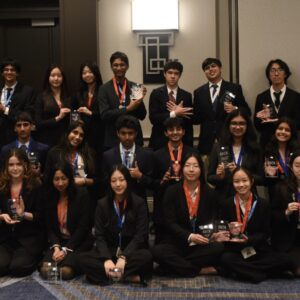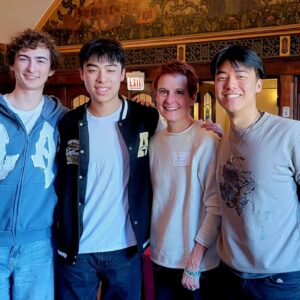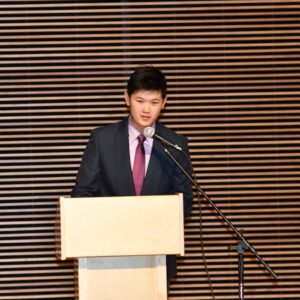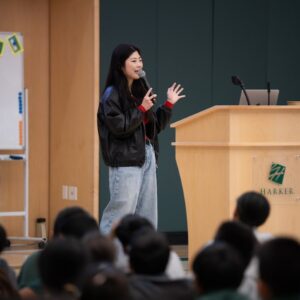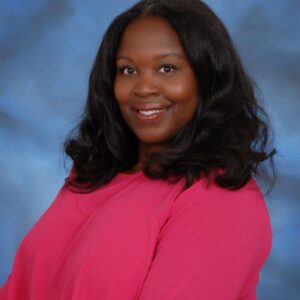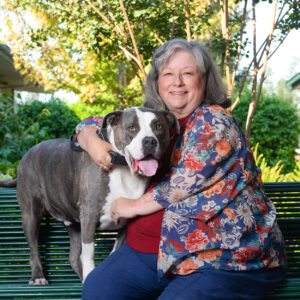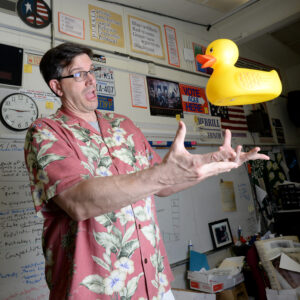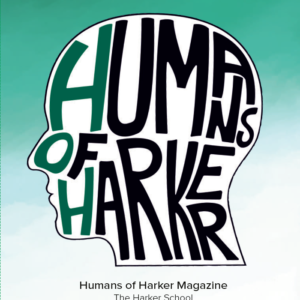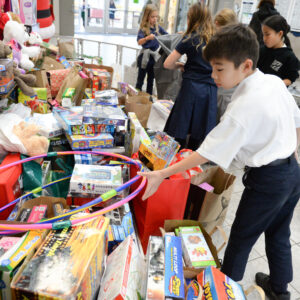This story originally appeared in the spring/summer 2020 issue of Harker Magazine.
By Brian Yager, Head of School
My grandmother lived close to the elementary school my brothers and I attended. Whenever we became sick during the school day, she would drive the four blocks up the road, pick us up, and return us to her house to recuperate. Invariably, as we lay on her couch (sometimes with a bowl of ice cream in our laps, others with a thermometer in our mouths), she would turn on the old record player and we would listen to the symphonic recording of the story “Peter and the Wolf.” I can still feel the vibration of the bass drum that would fill the room, simulating the sound of Peter’s firearm. And I can easily recall the image of the sunlight shining on the rim of the couch, dust illuminated by the rays, and I can still capture the smell of my grandparents’ house – a mixture of the lemon blossoms and cut grass from outside mingled with the faint smell of cigarette smoke sneaking out of my grandmother’s room.
I never considered it odd that some of my fondest – and clearest – memories from my time with my grandmother are from those days when she was taking care of me when I was ill. Looking forward, it seems likely that our experiences today in this time of COVID-19 and social unrest will occupy an important place in our memories when we reminisce on our lives many years from now. The disruption to our routines caused by this illness and the uncertainty it brings, followed by the transgressions of justice and the ensuing protests, illuminates for us that it is times when we are most disrupted that we remember (and learn from) the most. After all, there is not much that is memorable about the routine, or much that is educational about times that are easy.
In my remarks at this year’s virtual baccalaureate ceremony, I noted that Nietzsche said, “Sometimes, struggles are exactly what we need in our life. If we were to go through our life without any obstacles, we would be crippled. We would not be as strong as what we could have been.”
There have been many ways that we have been challenged this year, as individuals, as communities, and as a school. But, as we shifted to remote learning, it has also been a time for us to shine. At Harker, the spirit of our endeavor has lifted us to levels of learning and accomplishment that have been inspiring. While things have not always been smooth, the efforts of teachers, students and parents have been sublime.
Our struggles, and the obstacles we have faced, have allowed us to flex new muscles, and even sprout wings to help us overcome unexpected hurdles. As noted throughout this issue and in the communications to our community this year, there have been many moments, efforts and accomplishments worthy of celebrating, and that will stick with us throughout our lives, reverberating like the It is times when we are most disrupted that we remember (and learn from) the most.
But even as our own Harker community was rallying to meet the challenges of the shelter-in-place orders and the coronavirus, we were called upon as American citizens to face the systemic racial inequality that has plagued our country for centuries, and that was recently laid bare by the senseless killing of George Floyd. How, then, do we guide our students through such a time, as we bade farewell to them for the summer?
Harker’s mission statement is clear: it includes the language that we strive to “foster kindness, respect and integrity within a safe and nurturing environment…. We honor individuality, embrace diversity, and promote leadership and service….” As a school, not only do we have a commitment and obligation to ensure that Harker is a safe and supportive place for all, we also need to know that the education we are offering helps our students be prepared to contribute to the solutions that are so needed in our country. We embrace this responsibility and the conversations we need to have with students, alumni, teachers, staff and parents – and any changes we need to make – to ensure that our students are prepared to be the changemakers needed in our country.
Our unusual circumstances bring to my mind a work of author Edward Abbey, called “Desert Solitaire.” In it, Abbey shares his experiences living alone in the windswept and vermillion canyons of the Utah desert. While perhaps more germane to the isolation caused by the coronavirus, there are lessons to be learned for all of the struggles we face.
The first is that there is great beauty all around us, and that when we have the time and the inclination to look for it, grand discoveries await in places – both physical and mental – which we take for granted. It is interesting how many people have remarked about the cleaner air and prevalence of bird song these past two months. While both of these things may be more abundant now than they were two months ago, it also seems likely that the bigger change has been our ability – and desire – to notice more fully what was already around us.
Another is that we are all more capable of enduring hardships – physical, emotional, interpersonal – than we think we are.Abbey’s trials came climbing peaks beneath the sun’s pounding rays, in moments of consuming loneliness on starry nights, and in conflicts with those who desecrated the environment he loved. Our hardships have taken different forms, but have been no less affirming of our resilience.
When we each look back on this frame many years from now, we will remember different things and draw different conclusions and lessons from our current experiences. Yet some memories and lessons will be universal in our collective conscience, and among these will be the ability of Harker students, teachers and parents to remain dedicated to learning and to bettering ourselves at every turn, not just because the situation has demanded it, but because the situation has given us the ability to do so. I realize now that this was true of my grandmother as she took care of us as children. In her eyes, our illness and her proximity did not provide her with an obligation, but instead, an opportunity.
Harker will continue to embrace diversity and take its place with the other organizations and individuals who believe that racial injustice for some is racial injustice for all. We take seriously the mandate to practice what we preach, and teach our students to do the same.
May we all reflect deeply on the opportunities for betterment that this time brings us, while also warmly anticipating the time when we can see each other again.
